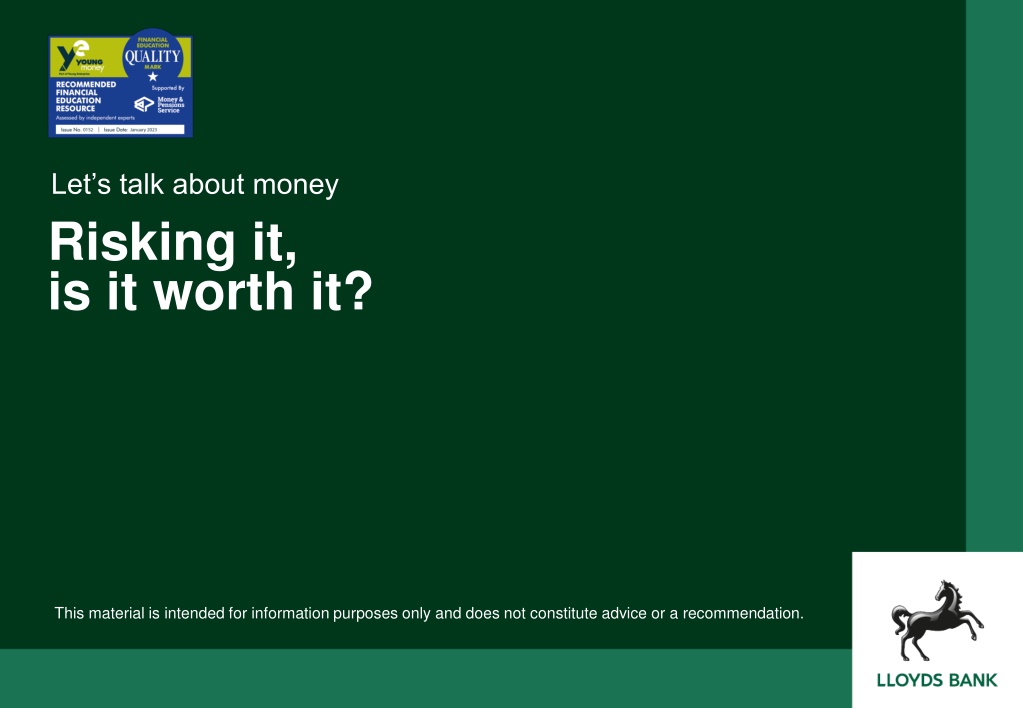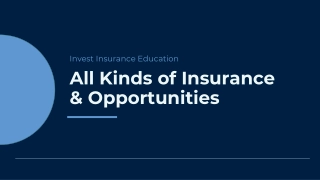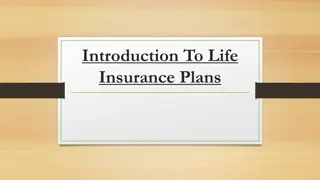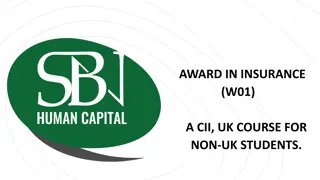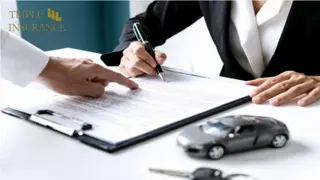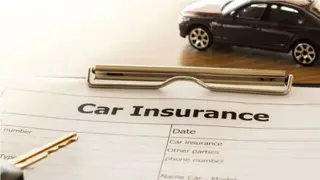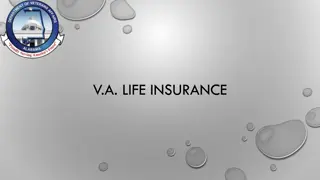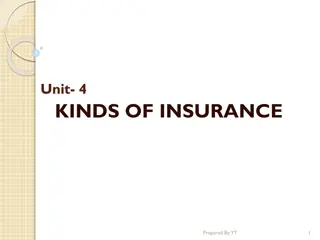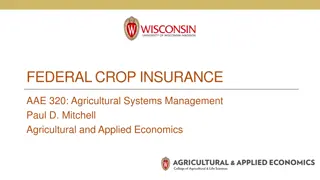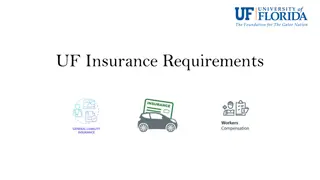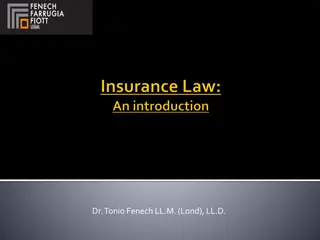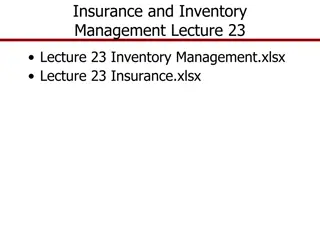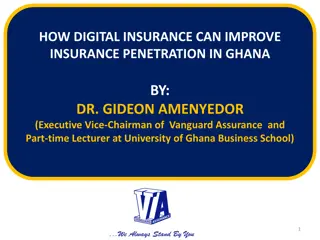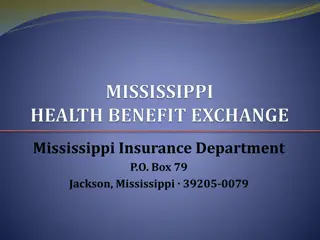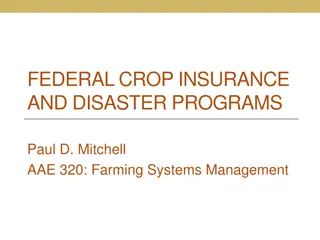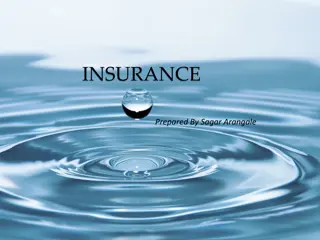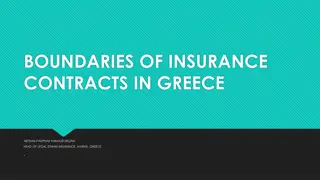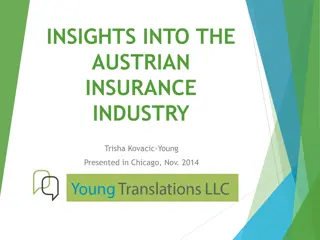Understanding Risk and Insurance: Is It Worth It?
This informative material explores the concept of risking money and the potential risks associated with it. It delves into ways to protect oneself against financial risks, including fraud and identity theft. The discussion covers the role of insurance in mitigating financial losses, the importance of assessing risk tolerance, and various scenarios where insurance may or may not be necessary. Additionally, it includes a quirky quiz on bizarre insurance claims to shed light on the diverse world of insurance coverage.
Download Presentation

Please find below an Image/Link to download the presentation.
The content on the website is provided AS IS for your information and personal use only. It may not be sold, licensed, or shared on other websites without obtaining consent from the author. Download presentation by click this link. If you encounter any issues during the download, it is possible that the publisher has removed the file from their server.
E N D
Presentation Transcript
Lets talk about money Risking it, is it worth it? This material is intended for information purposes only and does not constitute advice or a recommendation.
Introduction Today you will be learning about: Potential risks to do with money. How we can protect ourselves against risk. Fraud and ID theft.
Are you a risk taker? Have you: Been on a big roller coaster? Had a bet with someone? Run across the road without looking? Decided something by flipping a coin? Lent money to someone? Borrowed money from someone?
Risking it! How much are you prepared to take a risk? What might happen if things go wrong? Is it our responsibility to protect ourselves against risk? How might we protect ourselves against risk?
What is insurance? Insurance is a means of protection from financial loss. It can be used to protect you from things such as accidental damage, theft, illness, unexpected events, etc. It costs to insure and may not always be appropriate.
The weird and wonderful world of insurance quiz. You have a maximum of 5 minutes to read and discuss the statements and decide if they aretrueor false. You can buy insurance against accidental moustache removal.1 TRUE There was a successful insurance claim for the paint on a couple s car which was damaged by a herd of cows licking it.2 TRUE Not liking a holiday has been covered by holiday insurance. FALSE There was a successful insurance claim for a man trapped in a house he was trying to burgle, and forced to survive on dog food and soda.3 TRUE FALSE David Beckham insures his seat in Old Trafford. Theft of clothing by monkeys has been covered by holiday insurance.4 TRUE 1source: https://beardoholic.com/lloyds-insuring-facial-hair 2source: https://medium.com/@KingPriceIns/the-most-bizarre-insurance-claims-to-date-62520dc6ca12 3source: https://www.compare.com/auto-insurance/coverage/top-10-weirdest-insurance-claims 4source: https://home.bt.com/lifestyle/money/insurance/10-of-the-most-bizarre-travel-insurance-claims-11363966501713
Risk and insurance Fazal is planning a holiday. The holiday company offers him holiday insurance. Should he insure or not? Is there anything else Fazal could do? Sally has just bought a mobile phone. The phone shop offers her phone insurance. Should she insure or not? Is there anything else Sally could do? Facts: Insurance will cost 120 on top of the cost of the holiday. He will have to pay the first 250 of any claim. The holiday costs 1,200. Fazal s holiday isn t for another 10 months. Fazal has never been ill on holiday before. Facts: It will cost an extra 10 per month. She will have to pay the first 100 of any claim. Sally s phone costs 270. The contract is for 24 months. Sally has never lost or broken a phone before.
To insure or not? Insurance is a way to protect ourselves from risk. Insurance might not always be the best solution for everyone. Always: Shop around use comparison sites to help you do this. Find out what the insurance covers and what it doesn t. Weigh up the pros and cons of insurance. - How big is the risk? - Can I afford to take the risk?
Types of financial fraud & scams Social media scams ID fraud Emails and text scams: These appear to come from the social media app you use. It tells you there is a problem with your account. You provide personal details or payment to solve the problem. Fraudsters take on your identity to take out loans, or use your accounts. Bait and switch scams: You are sent a fake link to a viral video. You are then asked to update your app. When you click, it infects your device to steal personal details. Ticket Scams You buy tickets but you are either sent fakes or the tickets don t arrive.
Types of financial fraud & scams Card not present fraud Scam calls Safe account scams: Someone contacts you pretending to be your bank, the police or other governing bodies. They trick you and ask you to transfer money into a safe account, which you do. When in fact, the account is the fraudsters. Card not present fraud is a type of third-party fraud in which the physical card or PIN does not have to be present the card details have been fraudulently used to transact with an online retailer, or over the phone or by mail order. Authorised push payments: Scammers can pose as a legitimate business which you might already be dealing with. You then send them money instead of to the real person. Computer virus scams: Someone contacts you pretending to be your telephone or internet company. They tell you that there is a problem with your computer. You log in and give them access to solve the issue.
Financial fraud what does it cost? It s a big problem: In 2018, 844.8m was lost in financial banking fraud including: 22m Telephone banking fraud 123m Internet banking fraud 32.6m Card fraud at cash machine 47.3m Card ID theft 56.5m Safe account scams 506m Card not present (CNP) fraud Figures from UK Finance 2019
What can I do to protect myself? In 60 seconds Write down at least two key things you can or will do to avoid risk.
